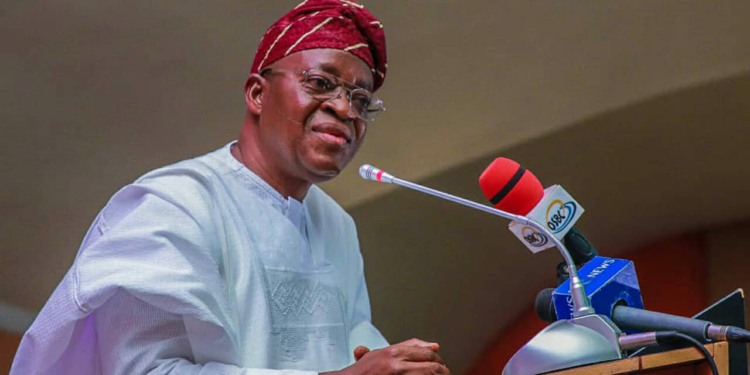- Aimed at decongesting the Western Port System and stimulating economic growth
President Bola Ahmed Tinubu has approved the establishment of Inland Dry Ports (IDPs) in Ijebu-Ode, Ogun State, and Moniya, Oyo State.
The decision is part of broader efforts to enhance Nigeria’s maritime infrastructure, address congestion at Lagos ports, and create much-needed jobs for the nation’s youth.
The approval, confirmed by Minister of Marine and Blue Economy Adegboyega Oyetola during the 2025 Budget Defence to the Joint Committee of the Senate on Marine Transport and House of Representatives Committees on Ports and Harbour, marks a significant step forward in the federal government’s plan to transform the maritime sector.
Oyetola emphasized that the development of Inland Dry Ports will not only ease pressure on the country’s seaports but also create jobs for youths in Ogun, Oyo, and other states within Nigeria’s western region.
These ports are expected to serve as key hubs for transportation, storage, and distribution, significantly impacting the region’s economy.
“These IDPs are crucial for fast-tracking the decongestion of our Western Port System,” Oyetola explained.
While discussing the approval, Oyetola highlighted ongoing challenges in Nigeria’s maritime sector, such as inadequate infrastructure, silted river courses, and limited fish production.
He noted that the Ministry of Marine and Blue Economy is focused on addressing these challenges with several key projects and programs aimed at improving operations and enhancing revenue generation.
“The Ministry is committed to improving maritime safety and security, increasing fish production, and deploying information technology to boost operations,” Oyetola said.
Oyetola further revealed that the Ministry had finalized several essential documents that lay the foundation for a sustainable and robust maritime policy.
These include the Nigeria National Blue Economy Strategy, the Fisheries and Aquaculture Policy, and the Strategic Roadmap for Nigeria’s Blue Economy.
“These documents are critical to building a strong framework for the future of Nigeria’s maritime sector.
“They will guide infrastructure development and the blue economy’s growth in the coming years,” he stated.
Looking ahead, Oyetola reaffirmed the Ministry’s commitment to sustaining the successes recorded in previous years.
The focus will be on improving port infrastructure, increasing fish production, and enhancing safety and security in the maritime industry.
“As we prepare for the 2025 Budget, we aim to build on last year’s achievements, with a specific focus on developing the ports infrastructure and creating opportunities for Nigerians in the maritime sector,” he said.


Discussion about this post